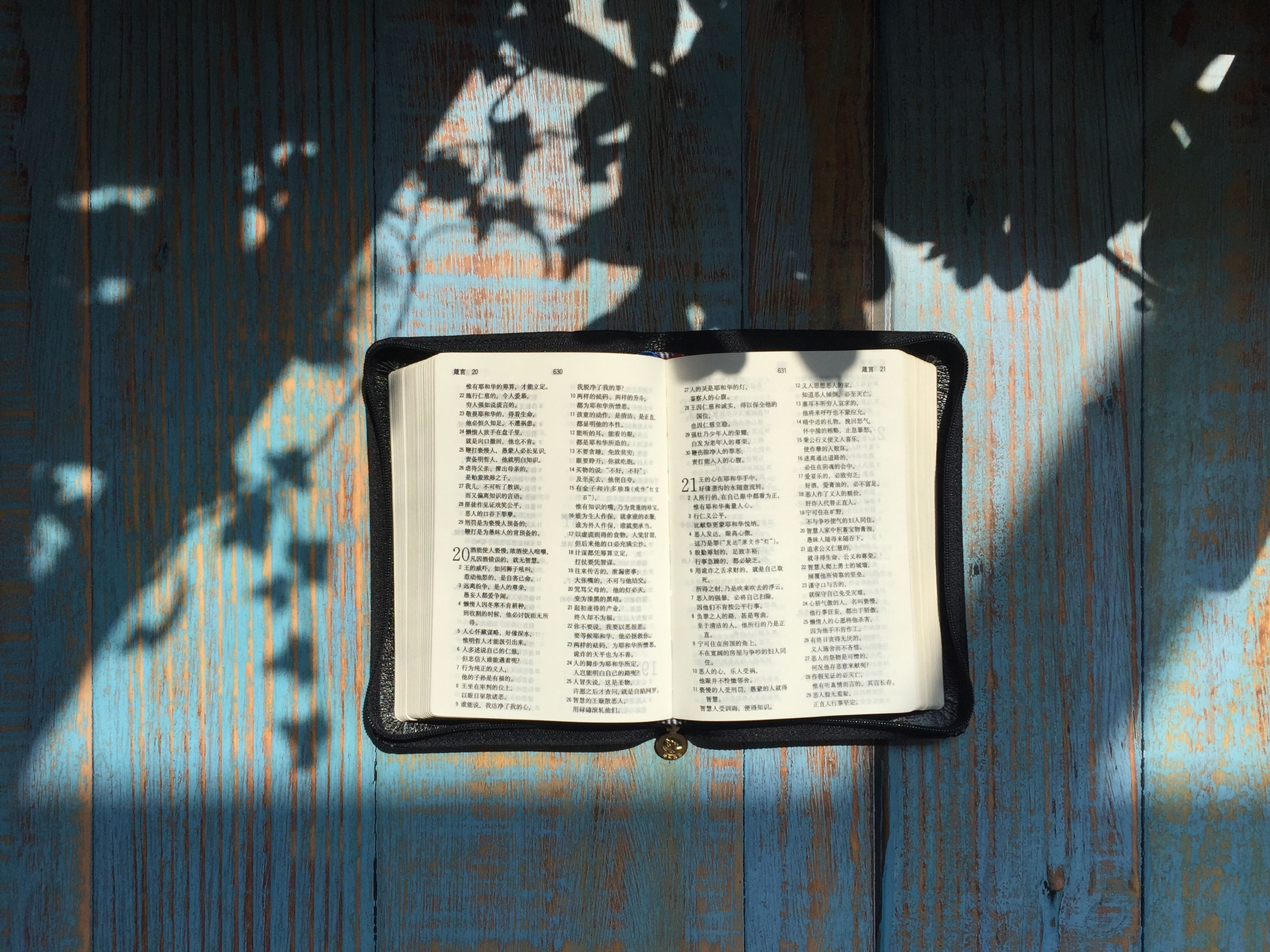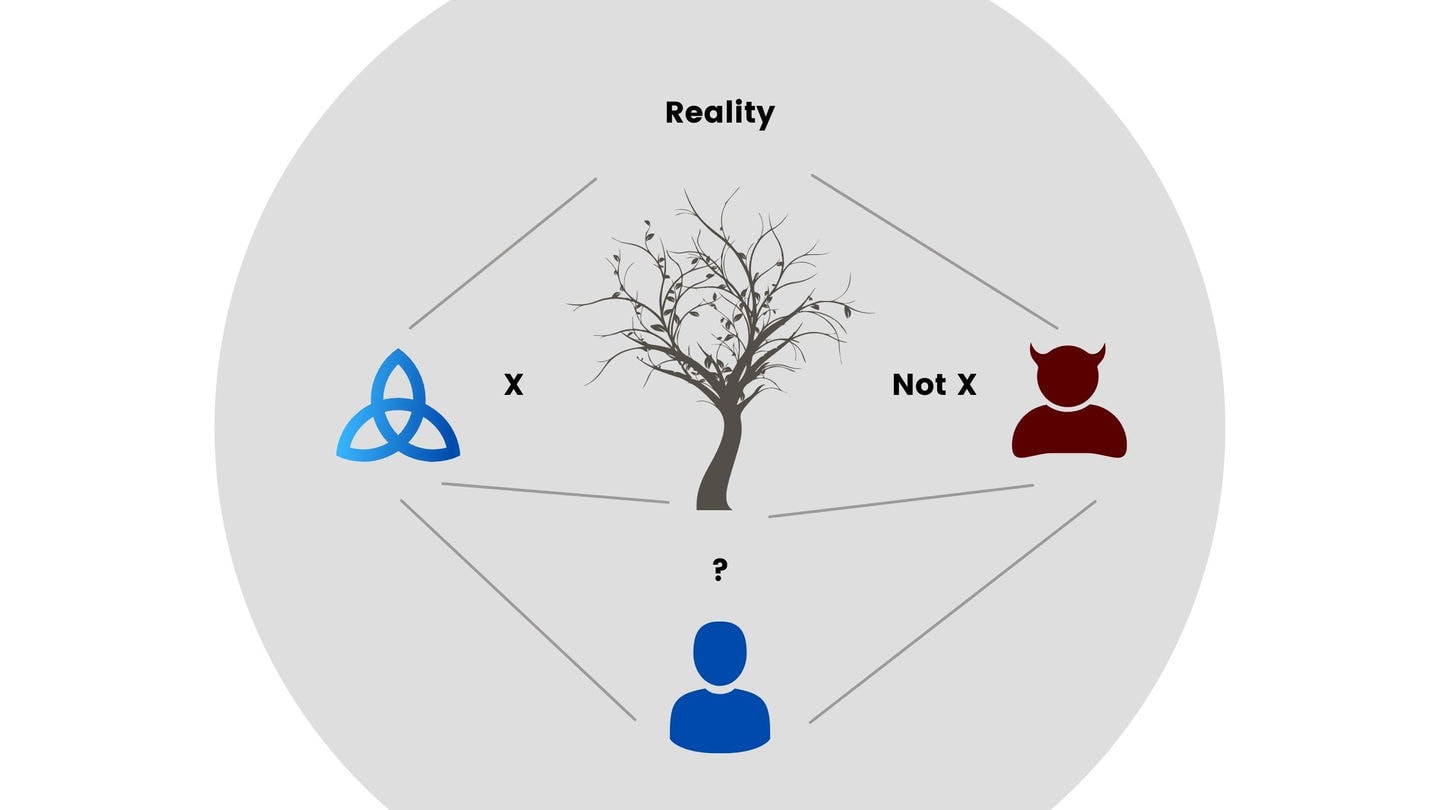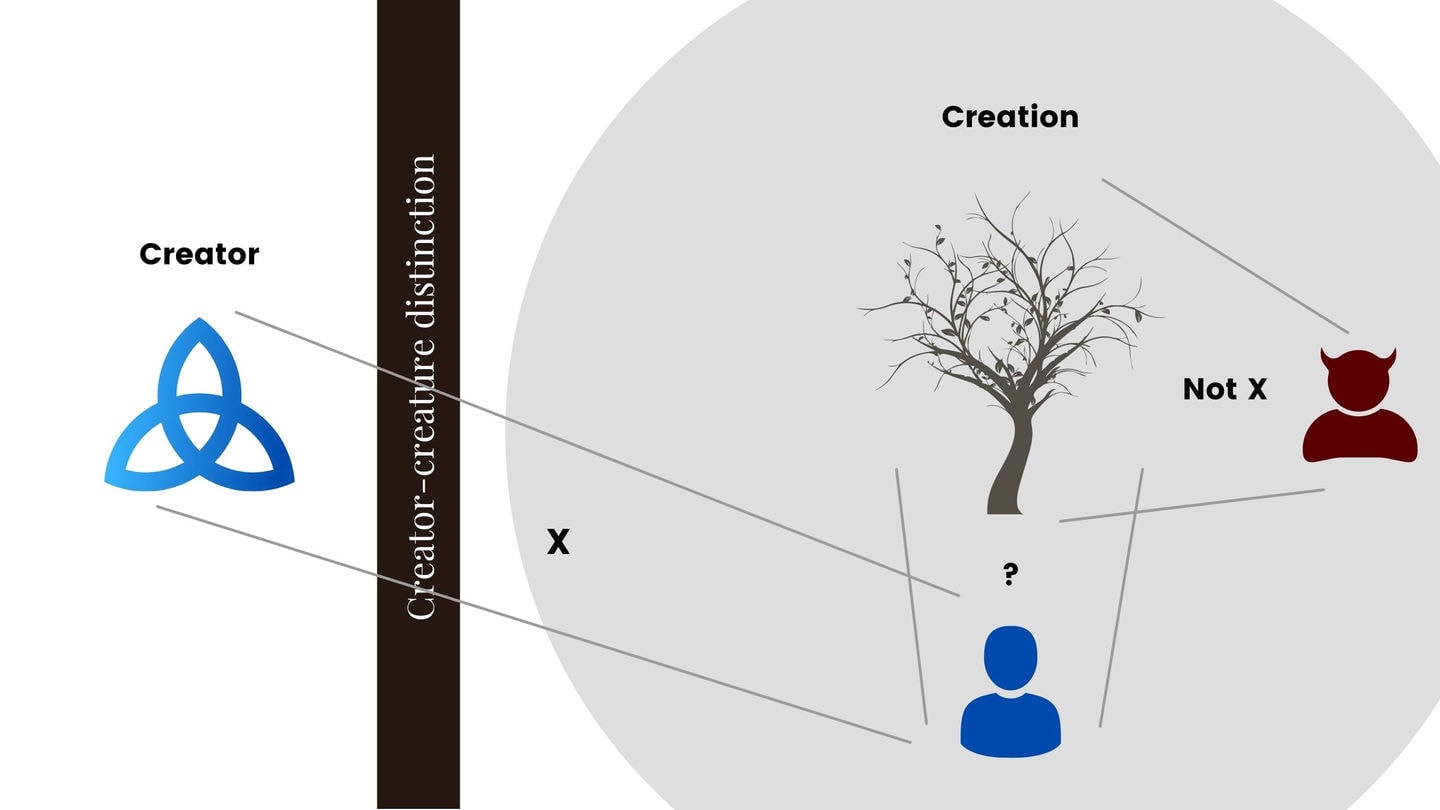The question stated in the title is usually asked as a subtle attack against Presuppositionalists and those who believe that the system of truth revealed in God's Word is to be accepted at face value and is not subject to independent verification using human reason operating in an autonomous fashion.
We'll attempt to answer the question by pointing to a Biblical example, and thereafter answer the question in a more direct manner.

A Biblical example
Before the Fall, God gave Adam and Eve a command:
The Lord God took the man and put him in the garden of Eden to work it and keep it. And the Lord God commanded the man, saying, “You may surely eat of every tree of the garden, but of the tree of the knowledge of good and evil you shall not eat, for in the day that you eat of it you shall surely die.”
Genesis 2:15-17, ESV
This command, at least according to the plain reading of the text, is a mediated command. It came to Adam and Eve via them hearing the command. The question before us is whether they were obligated to believe (note that I left out the "blindly" adverb - more on this later) what God had commanded them, or not. The person asking the question usually believes that Adam and Eve did not have an obligation to take the command at face value and believe it, but rather that they were justified in "wrestling" with the command, and that they were justified in "questioning" it before believing that what God says about the tree is true.
If we continue reading in Genesis 3, we see Satan entering the picture. First Satan twisted God's Words, and thereafter he flatly contradicted them. Eve was now sitting in a dilemma. According to God, if she were to eat of the tree of knowledge of good and evil, she will die. According to Satan, if she were to eat of the very same tree, she will not die, but become like God. We have two mutually exclusive statements about reality that cannot both be true. What should Eve do?
The incorrect procedure

In the above picture, we see God's interpretation of the tree indicated as X and Satan's interpretation as not X. Eve now needs to make a decision regarding the tree. Is God right, or is Satan right?
If Eve is to view herself as her own authority of what is possible and impossible and make judgements using the law of non-contradiction as conceived as an abstract law that helps her to determine possibility and impossibility, she will deduce that God's view (X) and Satan's view (not X) cannot both be true at the same time as governed by the law of non-contradiction. But, just because she knows both can't be right, does not mean that she knows who is right. Perhaps the tree itself can assist her in determining the truth?
When she looked at the tree, she saw the following:
So when the woman saw that the tree was good for food, and that it was a delight to the eyes, and that the tree was to be desired to make one wise...
Genesis 3:6a, ESV
So all in all, it seems like the tree is lending itself to Satan's interpretation.
The end result of Genesis 3 is that Eve decided to eat of the tree putting God's Word to the ultimate test, and in reality, rebelling against His authority as God.
The correct procedure

The difference in the correct procedure should be immediately noted. No longer is God included in a reality that encapsulates both man, Satan and Himself. He is the Creator God. The law of non-contradiction is no longer abstractly conceived as something that legislates possibility and impossibility, but God Himself determines the possible and impossible. In this view, the law of non-contradiction is a finite reflection of God's self-consistency, and a tool by which we can order the facts of experience in obedience to God.
God's interpretation of the tree (X), therefore makes the tree what it is and is absolutely authoritative. There is nothing in creation that owes its existence to something other than God (e.g. chance). Everything is what it is because God has decreed it to be as such.
It should, therefore, be clear that if this is the view that Eve maintained, the true interpretation of the tree cannot ever be found by listening to Satan. Nor is the answer to be found by looking at the tree itself in a neutral fashion. The answer is found by relating the facts of experience (i.e. the tree) to the system of knowledge that God has of creation and that which He has revealed of it. To know the tree truly is to know how the tree relates to God's plan for the tree.
Therefore, the true answer is found in God's revelation of what the tree is, and since God is the determiner of possibility and impossibility as the Creator (and not a third person in a contained in a reality with Eve and Satan), Satan's interpretation of the tree is false by implication. It should have been dismissed from the start and he should have been strongly rebuked by Adam and Eve.
Should we blindly believe the Bible?
Given our brief discussion concerning the events surrounding and leading up to the Fall, the question can now be asked: Should we blindly believe the Bible? If we asked the question a bit differently, as "Should we believe the Bible?", thereby leaving out the "blindly" adverb, I'm sure that no Christian will disagree.
To ask whether we should blindly believe the Bible is, therefore, not touching on whether we should believe the Bible or not (as there is agreement that we should), but it's touching on why we should believe the Bible in the first place.
For some people, the reason why we should believe in the Bible is because we can test it, question it, and independently verify its claims and its content is in accordance with reality. However, if we apply this manner of thinking about God's Word as something that stands in need of the independent verification to the appeasement of human reason and in line with some abstract principles of thought before it can be believed, it is difficult to see how we can in any way point out where Adam and Eve went wrong when they ate of the fruit. Rather, God is not subject to created reality, He is the Creator. His Word is true because it is the Word of the Creator God. He has absolute authority and not expert authority. Following Van Til from here on, since God is the Creator of all that is it follows that He can reveal parts of His system of knowledge to us in the Scriptures. Since all the facts of experience (including ourselves) find our full meaning in God's plan in Creation and there's no third power (e.g. chance) that can cause God to "wait and see what will happen in creation", it means that whatever God wants to reveal to us, whether it is mediate (coming through our senses) or immediate (revealed directly in the makeup of man) does reach God's intention with that revelation. It is the case that we are rational creatures with the ability to reason, but this does not give us a free ticket to suspend belief in what God has revealed to us until we can independently verify that it is in accordance with reality. Nor does it give us the right to suspend belief in God's Word until we have systematically grasped every aspect of His creation and revelation (which is an impossibility to begin with). We are allowed to wrestle with God's Word, and the Church has been wrestling and systematically laying out the truth contained in it over the past 2000 years - but never did they (and can we today) allow the legitimacy of a claim that God's Word might not be true, because as soon as we do this, we've done away with the Creator/creature distinction (i.e. God's Word can only be false, if somehow, God is also contained in a reality greater than Himself that He does not legislate and control). Nor does the above mean that we blindly believe the Bible (like to blindly believe the testimony of a murderer that he is innocent despite the testimony of the evidence to the contrary), but we believe the Bible (God's revelation to us) because without it, we cannot make sense out of reality. This follows from the Creation doctrine. If God is the Creator and controller of all that is, was and will be, it follows that if we want to understand anything at all, we need to relate it to God's system of knowledge. To deny that we need to do this, is to act in the same way as Eve did in the garden of Eden.
By extension, the manner in which we argue with unbelievers is, therefore, not in a manner that allows unbelievers to weigh the evidence against the Bible to determine that it's true (although there is an abundance of evidence that confirms it), but it's a transcendental argument. Believing the Bible is the only way to make sense of the universe, and if you deny it, you destroy the foundations for knowledge. This is not a blind faith. It's a sure, undoubtable and unshakable faith. This is what presuppositional apologetics is all about.
Discussion